How the Principles of Assessment and Accountability are Creating a Roadmap for the Future and a Call to Action to Defend Public Education
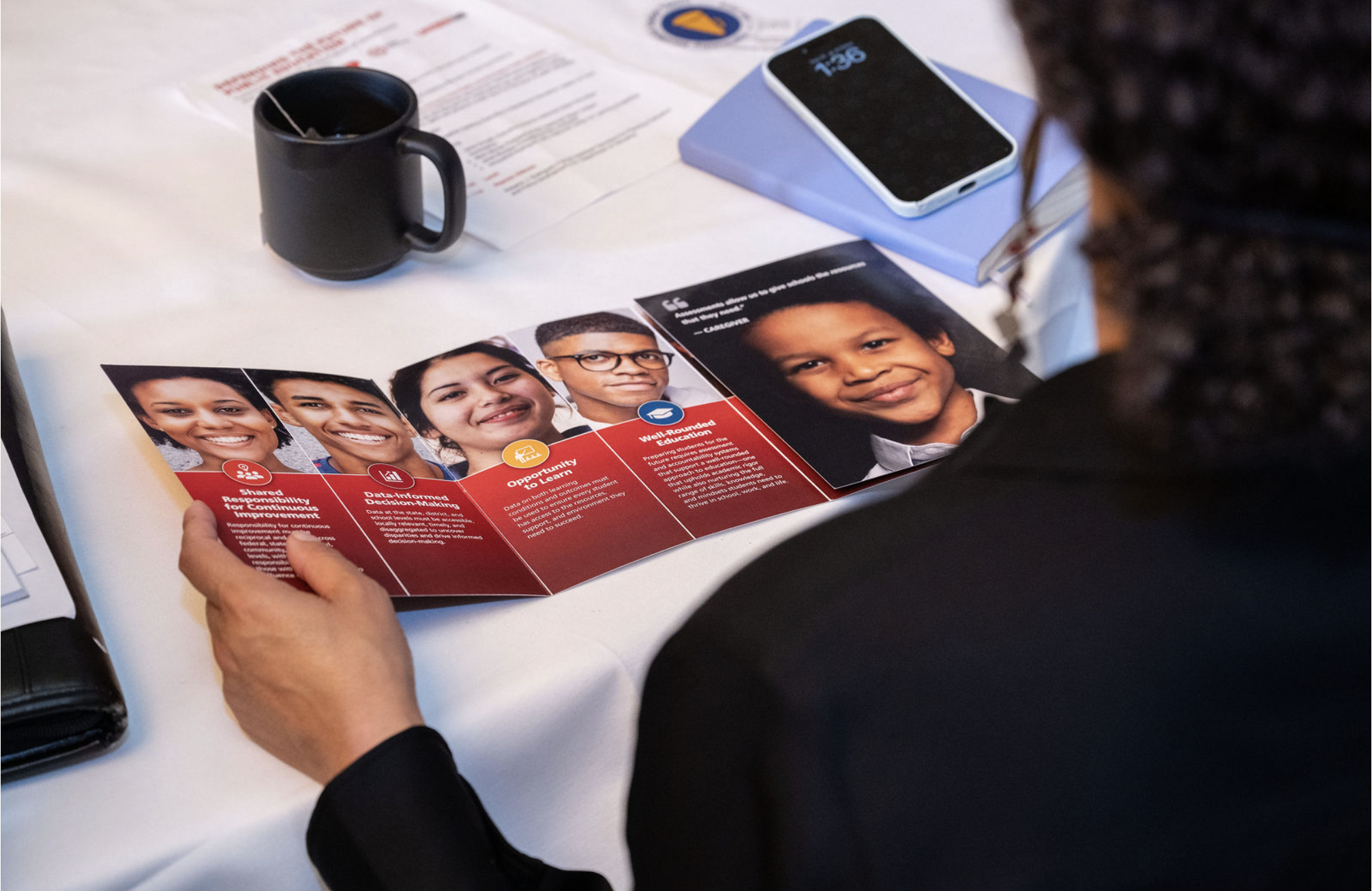
On June 10th, the National Urban League and UnidosUS crossed a milestone in their joint journey to reimagine the future of assessment and accountability systems in K-12 public schools. After four years of planning and collecting data from stakeholders, the final event, Defending the Future of Public Education: Culminating Summit of the Future of Assessment and Accountability Project, concluded with the release of a set of policy principles developed as a road map for rebuilding the education system through the lens of students, caregivers, and educators.
What felt like a victory lap for the project at the Washington, D.C. event became a call to action as speakers opened the summit, highlighting the looming threats to public education posed by the current administration.
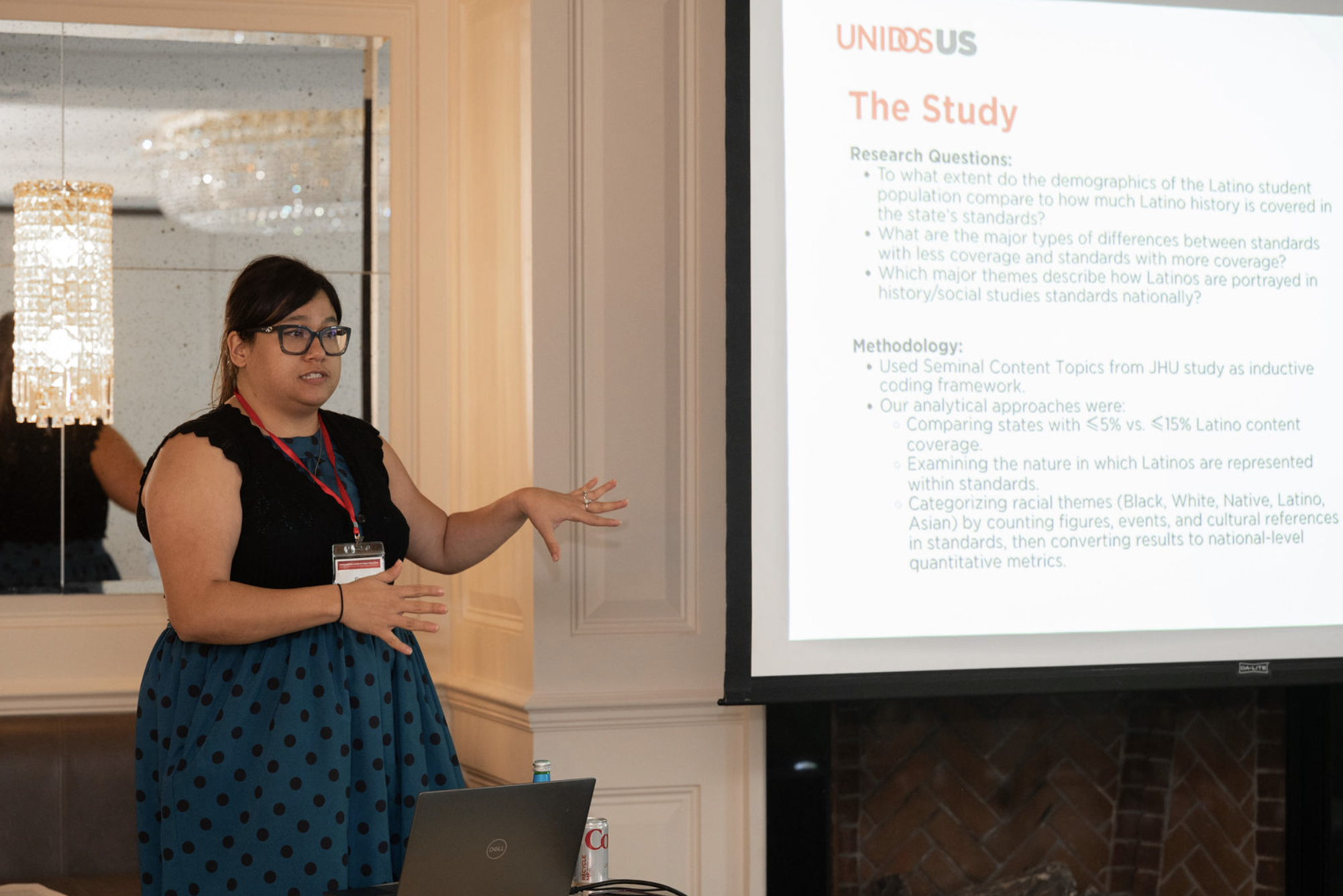
Representative Bobby Scott (VA-03) opened the summit with a speech defending the Department of Education. “The Department of Education is primarily a civil rights organization,” said Scott. “Ending public education in favor of voucher programs is not reform; it drains resources from public schools that overwhelmingly serve the majority of our students. And eliminating assessments without alternatives leaves us less informed and less prepared to help students succeed.”
Carmen Feliciano, Vice President of Policy and Advocacy at UnidosUS, reflected on the work of the civil rights community in advancing equitable education in America and urged attendees not to give up in the face of adversity. “We cannot abandon the core premise of public education in the United States, which is to provide a free, accessible, and quality education to all children,” said Feliciano. “We must support and strengthen public schools. We cannot, and will not, cede the progress we’ve made to ensure all children have a high-quality education.”
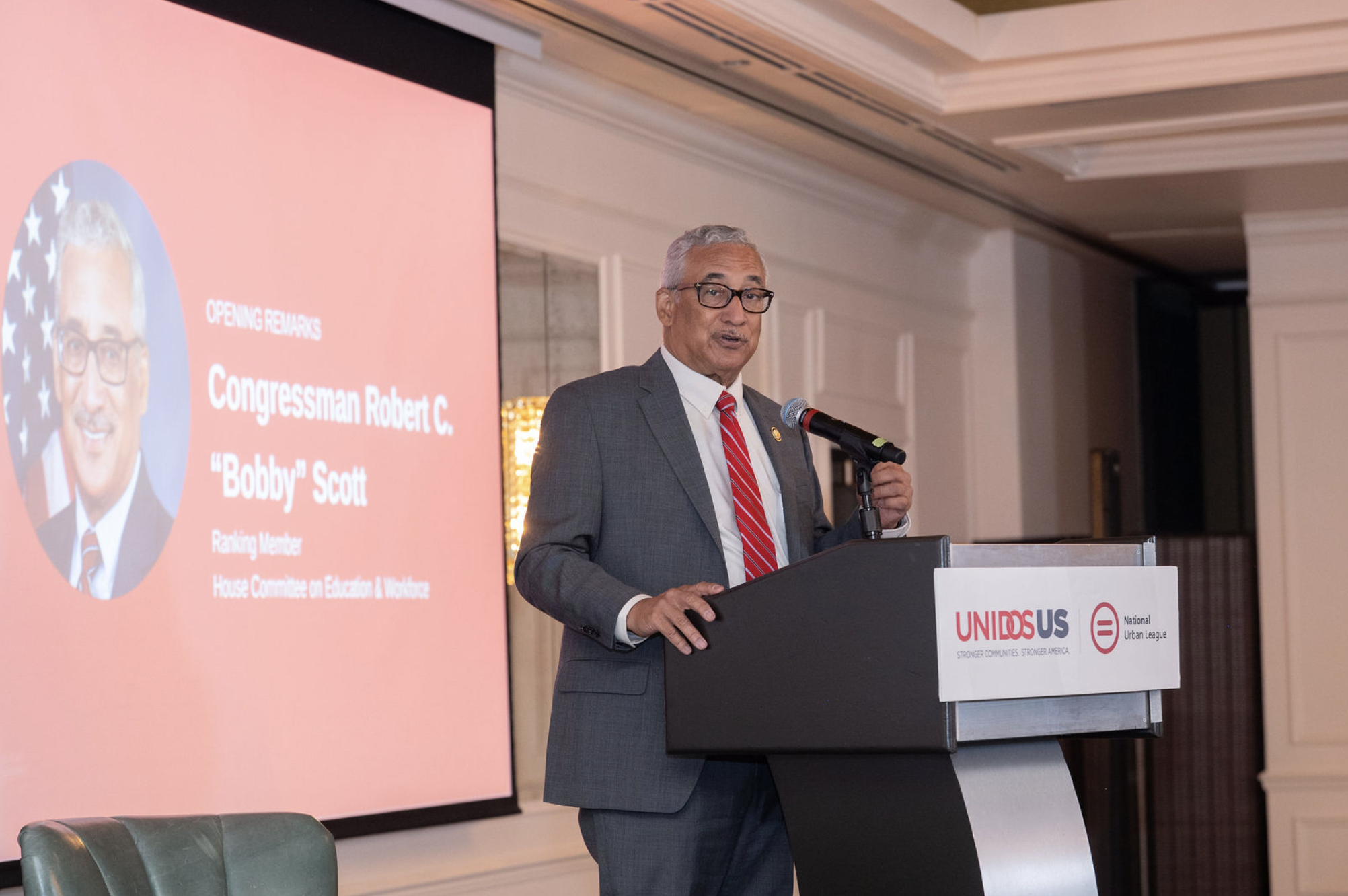
Since January, the national conversation around public education has been centered on government waste and diversity, equity, and inclusion (DEI), with narratives driven by the current administration.
“All of these debates around DEI and culture wars have a throughline: they are an effort to repeal the gains of the New Deal and the Civil Rights Movement, which aimed to create a more equitable future,” said Marc H. Morial, President and CEO of the National Urban League. “We can’t allow this attack on DEI to enable us to think that equity is a privilege and equality is a preference.”
In addition to the politicization of DEI, Janet Murguía, President and CEO of UnidosUS, spoke on the impact that divisive rhetoric on immigration plays in education inequality. “Folks who have the pulpit are creating a false narrative of a migrant invasion,” said Murguía. “The fear of deportation has impacted student performance, their mental health because of bullying, and parental involvement because they don’t feel safe going into these schools.”
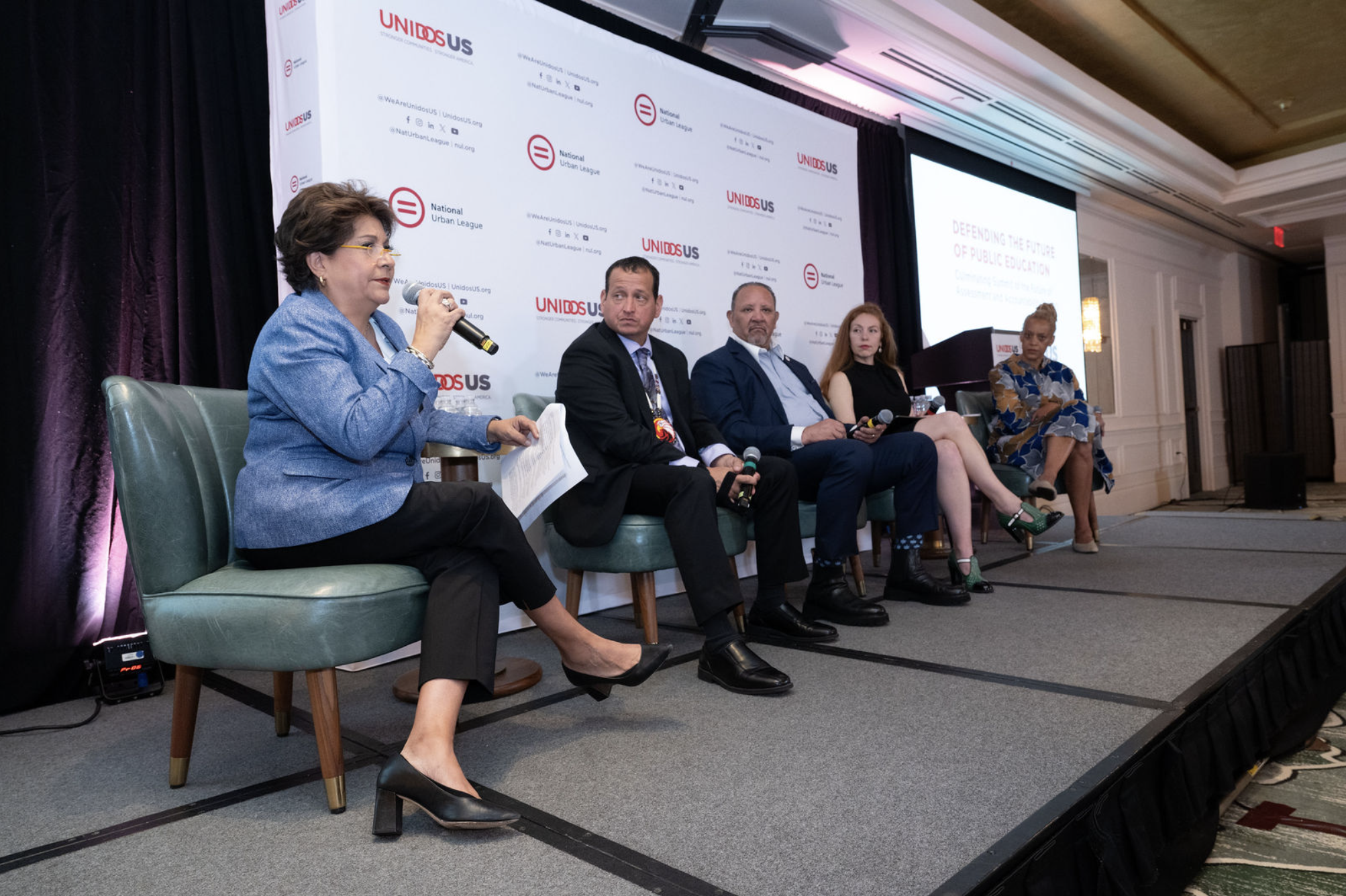
In the face of these threats, Jason Dropik, Executive Director of the National Indian Education Association, advocated for embracing our differences as a form of resistance. “I want to ensure that our communities aren’t forgotten or assimilated, but that’s not what our ancestors imagined for us.”
Jacqueline Rodriguez, CEO of the National Center for Learning Disabilities, encouraged the civil rights community to work collectively to advance educational equity. “If we do not work together in coalition, our power will be diluted and surgically removed from the places we belong. In an audience with the Education secretary, we told her that if disability is not the Trojan horse of DEI, we are DEI,” said Rodriguez. “What gives me hope at this moment is the coalition that we are building, and every person I’ve spoken to wants to do something about this, and we have a lot of people in the country who are waking up and are ready to make a change.”
Against this charged backdrop, the release of the Civil Rights Principles for Assessment and Accountability signaled a shift from reactive defense to proactive vision. Rooted in lived experiences and data-informed insights, they call for shared responsibility, meaningful assessments, and a holistic approach to learning that empowers all students, especially those who have been historically underserved.
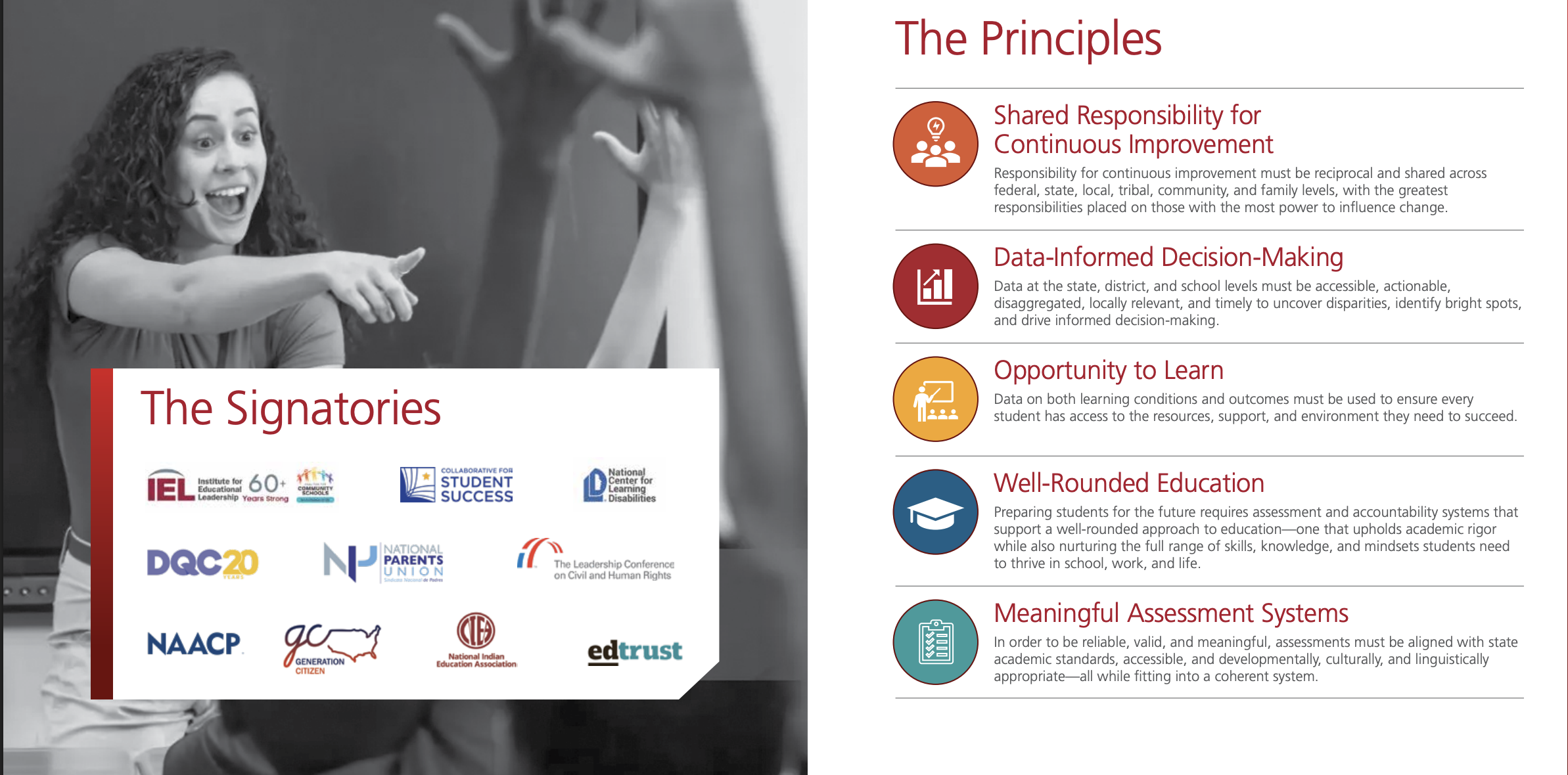
Data-informed decision-making was a theme of the second panel, as state school board leaders discussed challenges in the current assessment structures following breakout sessions.
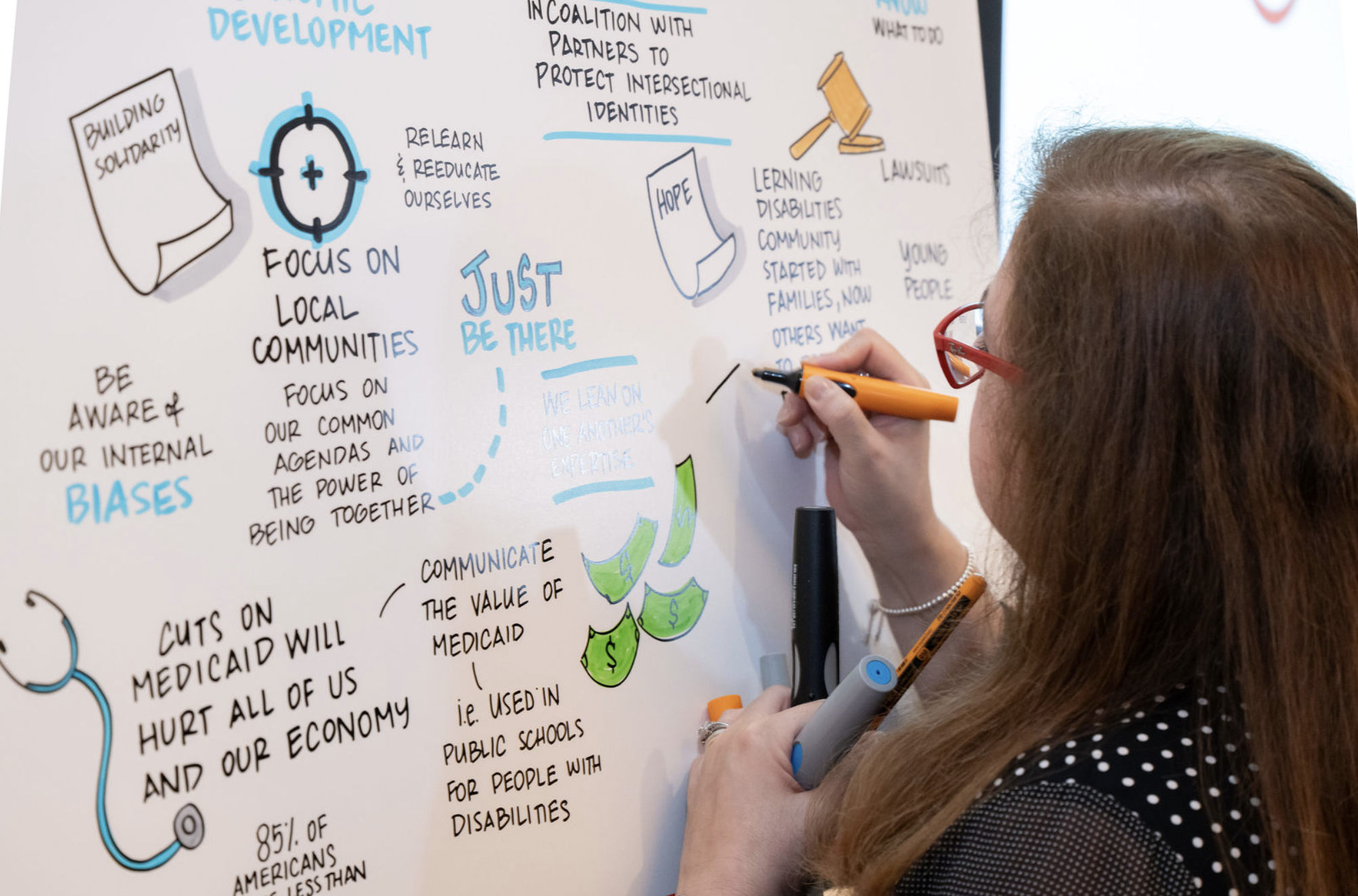 “When we look at data, we often overemphasize performance on assessments. In Oregon, we received feedback from the community about the kindergarten assessments. Kids as young as four were getting reading and math tests,” said Andrea Lockard, Director of Assessment and Student Reporting for the Oregon Department of Education. “Because of the feedback, we were able to develop a new assessment called the family conversation, where caregivers are invited in to have a conversation with teachers about the vision parents have for their child and what brings them joy. Our systems should be designed for our kids; our kids should not be ready to come into our system.”
“When we look at data, we often overemphasize performance on assessments. In Oregon, we received feedback from the community about the kindergarten assessments. Kids as young as four were getting reading and math tests,” said Andrea Lockard, Director of Assessment and Student Reporting for the Oregon Department of Education. “Because of the feedback, we were able to develop a new assessment called the family conversation, where caregivers are invited in to have a conversation with teachers about the vision parents have for their child and what brings them joy. Our systems should be designed for our kids; our kids should not be ready to come into our system.”
With the release of the equity principles and energizing discussions on how caregivers, educators, and advocates can work collectively to push for meaningful changes at the state level, attendees left hopeful with a tangible guide on how to make a difference back home. The next step for the National Urban League and UnidosUS will be to work with the collective to develop policy recommendations that help us achieve a more equitable future, delivering the best outcomes for our children and communities.
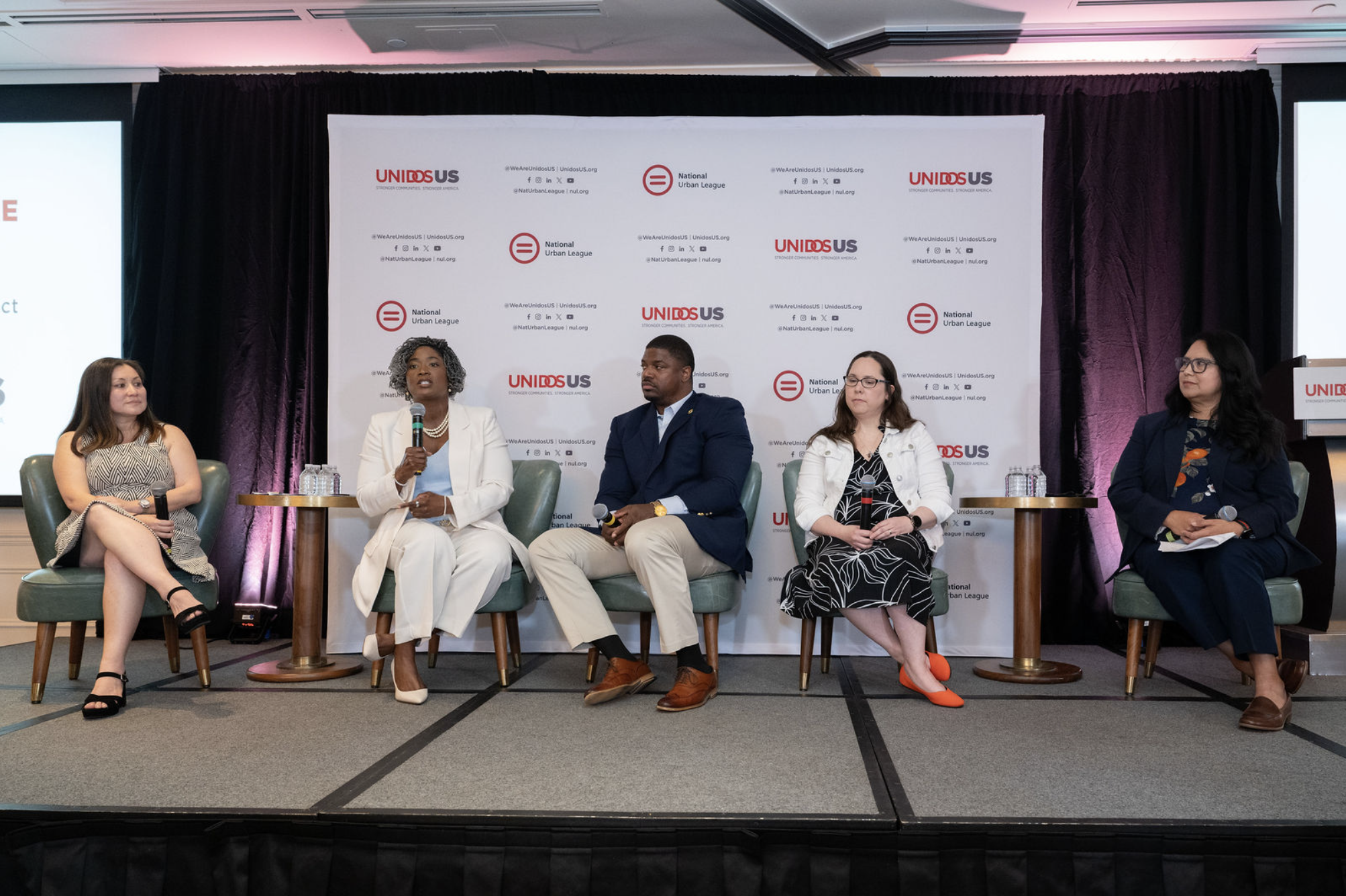
“If we fail at public education, we fail at the American dream,” said Dr. Tina Pierce, Board Member of Columbus Public Schools. “It’s deeper than this moment. This addresses the value system that underlies why our country was established.”
Resources
- Broadening Perspectives Home
- Findings from Phase One of Broadening Perspectives
- Principles for Assessment & Accountability
- UnidosUS Coverage of the Convening
- Read the recap of our Ohio Convening
- Watch our video series on YouTube
- Watch the recap of the California convening
- Watch the recap of our Ohio Convening

